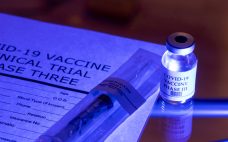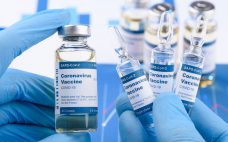Johnson & Johnson says the pausing of dosing in trials of its COVID-19 candidate is not unusual, but one analyst believes this could have significant negative impact for viral-vector based vaccines. Johnson & Johnson announced at the beginning of the week it has temporarily paused further dosing in all its COVID-19 vaccine candidate clinical trials due to an unexplained illness in a study participant. This included the Phase III ENSEMBLE trial of JNJ-78436735, also known as Ad26.COV2-S, recombinant, which is…

Regulations
SQZ Biotech lines up $75m IPO for cell therapy R&D
SQZ Biotechnologies says its technology can produce cell therapies in less than 24 hours compared to a month or more for current products and is looking to use IPO proceeds toward the completion of Phase I development of its lead therapeutic candidate. In¬†paperwork¬†filed with securities regulators late last week, SQZ set a preliminary $75 million goal for its IPO. The Watertown, MA-based biotech has applied for a listing on the New York Stock Exchange under the stock symbol ‚ÄúSQZ.‚ÄĚ SQZ…
Regeneron and Pfizer sued for ‚Äėunauthorised‚Äô reagent use
Allele Bio says Regeneron and Pfizer‚Äôs use of a labelling reagent during COVID-19-related vaccine and therapeutics development infringed on its IP. The San Diego biotech made the claim in lawsuits filed lawsuits against Regeneron and Pfizer this week. It said ‚Äúboth complaints address the infringement of Allele‚Äôs patented mNeonGreen reagent.‚ÄĚ mNeonGreen is a fluorescent protein used in biological assays. Like Green Fluorescent protein, when mNeonGreen binds a specific molecule it gives off a fluorescent signal that can be used to…
Trump‚Äôs ‚Äėreckless‚Äô drug pricing Executive Order threatens innovation, BIO chief
The US is doing more in the COVID-19 space than anywhere in the world due to the strength of its innovative ecosystem, says Michelle McMurry-Heath, head of trade group BIO. But such innovation is under threat due to ‚Äúreckless‚ÄĚ orders coming out of the White House. As part of an exclusive interview filmed for Xconomy‚Äôs Xcelerate‚Äôs Keynote Series at Biotech Week Boston next week, Michelle McMurry-Heath, president & CEO of life sciences advocacy group Biotechnology Innovation Organization (BIO), criticized Executive…
As COVID disrupts FDA inspections, will liso-cel approval be further delayed?
Coronavirus-related constraints mean the US FDA has not yet inspected manufacturing facilities in Washington and Texas, risking a delay in the approval of Bristol-Myers Squibb‚Äôs lymphoma CAR-T candidate liso-cel. Bristol-Myers Squibb added anti-CD19 targeting lymphoma candidate lisocabtagene maraleucel (liso-cel) to its pipeline through the $74 billion acquisition of Celgene. In May, the action date of the Biologics License Application (BLA) for the chimeric antigen receptor (CAR) T-cell therapy was extended by three months by the US Food and Drug Administration…
Samsung Bioepis: Govs and biopharma must work on post-COVID supply chain security
With biopharma operations still affected by coronavirus, governments and industry must look ahead to ensure the security of manufacturing resources and supply chain structures, says Samsung Bioepis. Like other companies, 2020 has been a challenge for Samsung Bioepis with the global coronavirus pandemic laying waste to ‚Äėnormal‚Äô business procedures and supply chain management. ‚ÄúWe’ve supplied more than 18 million units of product worldwide since 2016 without experiencing any supply shortages in providing our products to customers and patients,‚ÄĚ Kevin Jack,…
Calculated risk is key to rapid COVID-19 vaccine development says CEPI
Taking calculated risks will accelerate SARS-CoV-2 vaccine development according to CEPI, which says traditional techniques are too slow. Developing a vaccine usually takes between six to 11.5 years according to the Gates Foundation backed Coalition for Epidemic Preparedness Innovations (CEPI). In traditional development models target identification can take six months to two years, followed by preclinical testing and up to a decade of clinical development. Manufacturing scale up also takes years. But the COVID-19 pandemic calls for a different approach…
Pfizer blasts Trump’s pricing plans, threatens to pull US investments
CEO Albert Bourla says Pfizer will rethink plans to invest in US R&D and manufacturing after lambasting four executive orders aimed at reducing drug prices unveiled last week. Like most areas of society, Big Pharma‚Äôs relationship with US President Donald Trump has been tumultuous. Initial fears of a clampdown on drug pricing through promises to ‚Äėdrain the swamp‚Äô were abated through Trump cozying up with the sector once in office. And reforms passed by Congress in 2017 through the¬†‚ÄėTax Cuts…
Kite flies high with second CAR-T approval
Gilead‚Äôs Kite has won US FDA approval for Tecartus (brexucabtagene autoleucel), a CAR-T cell therapy for the treatment of mantle cell lymphoma (MCL). Tecartus becomes the third chimeric antigen receptor (CAR) T-cell therapy to be granted approval by the US Food and Drug Administration after Novartis‚Äô Kymriah (tisagenlecleucel) and Kite‚Äôs Yescarta (axicabtagene ciloleucel), both of which were approved in 2017. Tecartus is designed to target CD19, a protein found in high amounts in cancerous B cells, and the regulatory decision…
WHO drafting regulatory convergence white paper on cell and gene therapies
Regulators in high-income countries have a responsibility to help health authorities in low- and medium-income countries develop regulatory frameworks for cell and gene therapy products to ensure these treatments are available to all, asserts the US FDA‚Äôs biologics center‚Äôs director Peter Marks. The World Health Organization plans to soon issue a white paper proposing a harmonized regulatory framework for cell and gene therapy products, according to Peter Marks, director of the US Food and Drug Administration‚Äôs Center for Biologics Evaluation…










